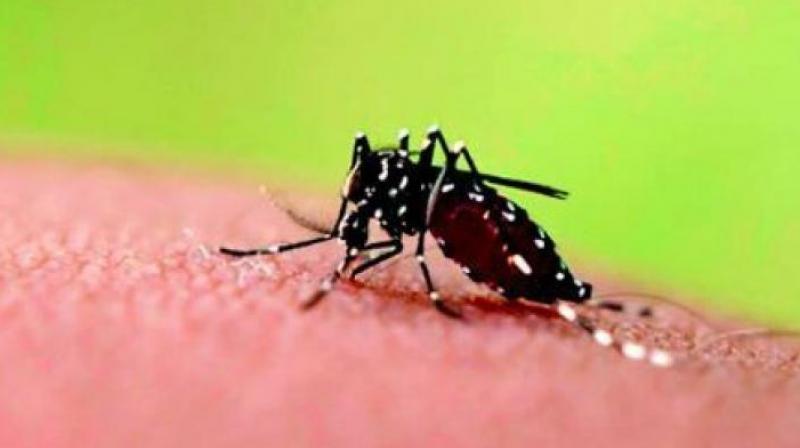Tamil Nadu: Monsoon washes away dengue cases
Entomologists say that regular rains coupled with decline in temperatures helped to break the breeding cycle of mosquitoes.

Chennai: Northeast monsoon brought relief to the state not only by providing for the water scarcity but also helped to bring down dengue cases to a minimal. Entomologists say that regular rains coupled with decline in temperatures helped to break the breeding cycle of mosquitoes, washing away the larva along with rainwater. More than 22,630 dengue cases and 52 deaths due to dengue were registered in Tamil Nadu from January till December 17 this year, as per the data received from National Vector Borne Diseases Control Programme (NVBDCP). Government hospitals currently witness a maximum of 10 cases of dengue on a daily basis that used to be around 100 cases before monsoon set in.
“The dengue-carrying vector Aedes mosquito breeds mostly in stagnant rainwater after which larva needs a week to metamorphose into an adult mosquito. But, regular rains wash away the mosquito larva, as there is no time for the larva to hatch and turn to adults, therefore, the breeding cycle breaks. After November as the temperature lowers, it becomes difficult for the larva to survive,” said S Meena, an entomologist.
Entomologists also say that as the monsoon sets in and temperature drops, many reptiles and amphibians that feed on mosquitoes or mosquito larvae become active and help to destroy the breeding cycle. The district administration department of Chennai and other districts including Villupuram, Thiruvallur, Kancheepuram, Krishnagiri and Salem claim to have brought the dengue cases completely under control, with minimal cases being witnessed.
“It was not only the monsoon but also the pre-monsoon systematic approach by more than 7,000 field workers from all the departments that prevented the surge of dengue cases after rains. Rain can wash away the larva, but cleanliness and awareness campaign also played a major role in eradicating dengue. There are less than five cases of dengue in the district currently, which used to be around 30-40 cases before the monsoon,” said Thiruvallur collector, E.Sundaravalli.
Public health director K Kolandaisamy said the efforts to prevent the surge in dengue cases have borne fruit. Rains did a dual work of washing away the larvae and providing for the everyday water needs of people. After rains, the everyday water supply increased and the residents need not store water that could give way for dengue breeding in freshwater. The contamination of water is now the focus to prevent cases of diarrhoea, leptospirosis and other water-borne diseases, he said.
Spl dengue wards are empty
The special dengue wards and four fever intensive care units at Rajiv Gandhi Government General Hospital that witnessed more than 50 dengue positive cases and more than 400 fever cases are empty. As the dengue cases declined, the hospital had a maximum of 7-8 dengue cases this month, say hospital authorities. Kilpauk Medical College has only 20-30 fever cases and around five dengue cases, while Stanley Medical College Hospital currently has eight dengue patients and 78 fever patients. The pediatric dengue cases have also gone down with only four cases currently.

